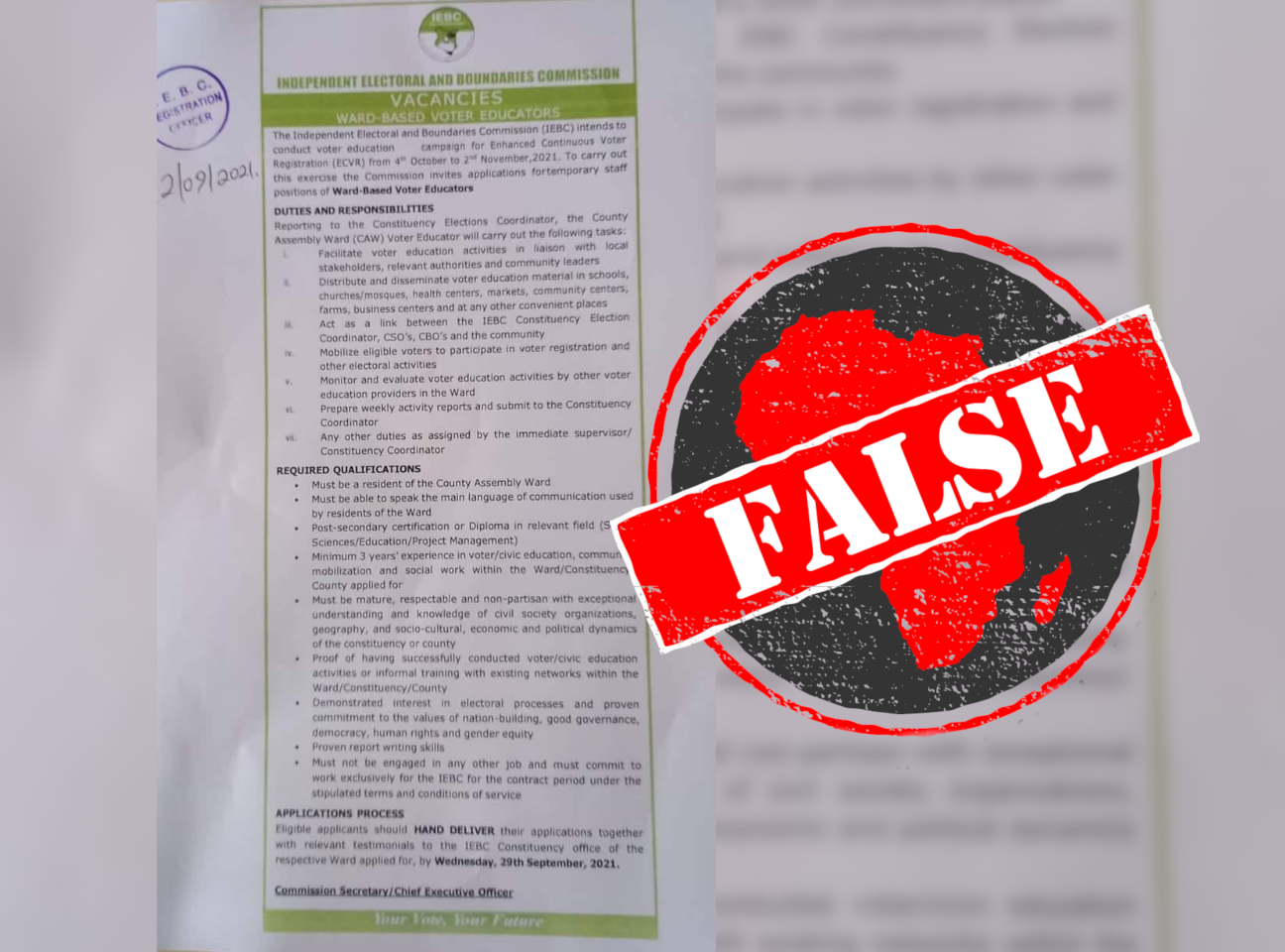A job advert posted on a public Facebook group with nearly 40,000 members claims that Kenya’s electoral commission is hiring temporary voter educators for wards.
It says the jobs will be part of a voter education campaign to boost voter registration from 4 October to 2 November 2021.
“The Independent Electoral and Boundaries Commission (IEBC) intends to conduct a voter education campaign for Enhanced Continuous Voter Registration (ECVR) from 4th October to 2nd November, 2021,” the ad reads.
“To carry out this exercise the Commission invites applications for temporary staff positions of Ward-Based Voter Educators.”
It says applicants must have at least three years’ experience in voter education and social work in the ward in which they apply.
The ad is full of grammatical errors, often a sign that a source is not to be trusted. Is it legit? We checked.

Jobs not advertised on official IECB channels
There is no reference to the vacancies on the electoral commission’s official website or verified Twitter and Facebook accounts. The most recent job opening on the website closed in April 2017.
On 29 September the IEBC posted the ad on Twitter, branding it fake.
IEBC’s attention has been drawn to a fake viral advert calling for applications for short time jobs as voter educators for the #ECVR2021, which kicks off on October 4th, 2021.
— IEBC (@IEBCKenya) September 29, 2021
Note the Commission has not advertised for such positions and the public is advised to ignore the same. pic.twitter.com/AQdanoug1C
“IEBC’s attention has been drawn to a fake viral advert calling for applications for short time jobs as voter educators for the #ECVR2021, which kicks off on October 4th, 2021,” the commission tweeted.
“Note the Commission has not advertised for such positions and the public is advised to ignore the same.”
Republish our content for free
For publishers: what to do if your post is rated false
A fact-checker has rated your Facebook or Instagram post as “false”, “altered”, “partly false” or “missing context”. This could have serious consequences. What do you do?
Click on our guide for the steps you should follow.
Publishers guideAfrica Check teams up with Facebook
Africa Check is a partner in Meta's third-party fact-checking programme to help stop the spread of false information on social media.
The content we rate as “false” will be downgraded on Facebook and Instagram. This means fewer people will see it.
You can also help identify false information on Facebook. This guide explains how.


Add new comment